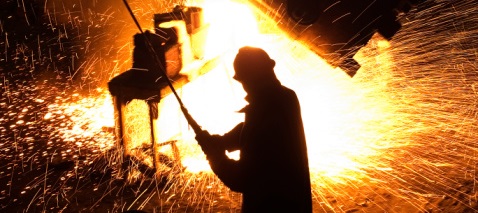Bad for both EU and UK workers
Brexit loomed large at this year’s industrial sector conferences, with delegates expressing concerns at the Tories’ lack of a negotiating position and the risk of damage to jobs and the economy if no deal is reached.
In his keynote speech Unite general secretary Len McCluskey described the very real danger of a “jobs massacre” from the government’s divisions and mishandling of the Brexit process.
Worries were also expressed by international guests from a range of trade union federations, who agreed with Unite’s demands for Britain to retain access to the single market and a customs union.
European Transport Federation president Frank Moreels told delegates that a hard Brexit would be bad for both British and EU workers.
He said, “There are people who say â€well the British they chose Brexit so get rid of them… if we make a bad agreement with them, well that’s their problem’.
“But that isn’t a good approach. There are an enormous amount of challenges that British working people will have, but there are also an enormous amount of challenges European working people will have with Brexit also.”
Praise
Moreels praised Unite’s work on Brexit and said EU and British unions must continue to work together to ensure an exit that protects jobs and living standards in the UK and on the continent.
He said, “I don’t think there are a lot of proposals in the Unite proposals that would be a breaking point between us.
“Unite is very active and has a lot of ideas with how to deal with this issue and a lot of other unions don’t and are not active enough in the reflection of the consequences of Brexit.”
General secretary of the European Federation of Building and Woodworkers, Sam Haggland, said his organisation was in direct opposition to right wing extremists in the Tory party who want to use Brexit as a vehicle to turn the UK into low-tax low-regulation state on the shores of Europe.
Haggland explained that the uncertainty caused by Britain’s weak and conflict-riven government has increased the chances of such a scenario – one that Theresa May has used as a threat against the EU.
â€Damage control’
“Now we work with damage control so it won’t be worse for the workers of the UK. So that the UK won’t be some sort of haven for employers who want to cut wages and working conditions. We don’t want that because it is will negatively affect the rest of Europe as well,” Haggland said.
With many worrying about the government’s courting of the Trump administration in the US, as well as other nations with questionable reputations over workers’ rights, International Transport Federation assistant general secretary Rob Johnston said any post-Brexit trade deals must represent the interests of working people.
He said, “We need trade agreements that are not just beneficial to profits but that benefit workers; so they contain clauses that make sure there is social inclusion and protections for workers. They must create a race to the top, rather than a race to the bottom.”
All-in-all, European trade unions stand shoulder to shoulder with their UK counterparts in the face of the threats posed by Brexit, Johnston explained.
He said, “The one thing I can say about the European trade unions, is that there is a great deal of good feeling, a great deal of solidarity and a recognition that we need to benefit all workers and not just a few bosses.”
 Like
Like Follow
Follow


